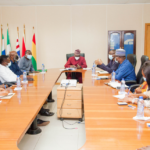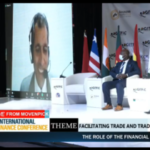January 2024 Report
Overview of Women in Trade in Selected African Countries
The African Continental Free Trade Area (AfCFTA) presents a significant prospect for women involved in trade across the African continent, encompassing nations like Equatorial Guinea, Ghana, Burkina Faso, Togo, Ivory Coast, Namibia, Niger, and Tanzania. The AfCFTA offers an avenue to further encourage women’s participation in trade and mitigate gender disparities. Through the enactment of trade policies that incorporate gender considerations and by extending support to women in various trade-related activities, these countries can unlock the full potential of women as vital contributors to economic growth and regional integration. The extent to which women can capitalize on the opportunities offered by the AfCFTA hinges on the elimination of existing inequalities and gender-related trade impediments through the development of gender-responsive AfCFTA policies and complementary measures.
December 2023 Report
A Case Study of The Swiss Central Bank, Central Bank of the Czech Republic, European Central Bank, Federal Reserve of USA, The Central Bank of England, the Central Bank of Zambia and The Central Bank of Ghana
In 2020–2022, a unique confluence of global challenges, including the lingering effects of the COVID-19 pandemic and the geopolitical tensions arising from the Russia–Ukraine war, resulted in significant financial setbacks for central banks worldwide. This research paper delves into a comprehensive case study analysis of several prominent central banks that encountered financial losses on their balance sheets during this tumultuous period. The central banks under examination include the Swiss Central Bank, Central Bank of the Czech Republic, the European Central Bank, the Federal Reserve of the United States, the Central Bank of England, the Central Bank of Zambia, and the Central Bank of Ghana.
November 2023 Report
The seemingly effects of COVID-19 on Global Debt to Gross Domestic Product on Economic Output; shedding light on the mechanisms through which these impacts have occurred.
Advanced Economies (AEs), Emerging Markets (EMs), Low-Income Developing Economies (LIDCs), African Development Bank (AfDB), European Union (EU), Public Revenue Mobilization (PRM), Growth Stability and Sustainability (GSS), Ghana International Trade and Finance Conference (GITFiC), International Monetary Fund (IMF)
April 2023 Report
THE AFRICAN CONTINENTAL FREE TRADE AREA (AfCFTA) AND THE DIGITAL ECONOMY; MAXIMIZING THE TRADE DEAL IN THE AGE OF DIGITAL ECONOMY
The region has had the world’s fastest growth in digitalisation over the past decade, as evidenced by the increasing number of digital technology platforms and enterprises with greater digital penetration. Digital access in the continent’s sub-Saharan area is expected to expand by 130 percent by 2025. The pervasiveness of the online platform, the increased use of technologies, and the growth of digital economies has reduced the traditional concept of territorial boundaries as they relate to trade.
March 2023 Report
The formation of the West African Economic and Monetary Union (WAEMU) currently known as
the West African Monetary Union (WAMU) which was well-known in 1994 as a full-fledged monetary
union (initially established in 1962) adopted the CFA franc as the union’s sole currency, which has
been tied to both the French franc and most recently the euro. In 2000, countries in West Africa stated
their intention to hasten the monetary unification process that had been started in the early 1980s,
which was culminated in a two-phase development plan of a common currency in West Africa
June 2022 Report
DIGITAL STRATEGIES ARE GAINING IMPORTANCE IN NATIONAL POLICY AGENDAS ACROSS AFRICA.
Strategies such as Ghana’s Digital Acceleration Project, Rwanda’s Smart Rwanda Master plan, Kenya’s Digital Economy Blueprint, Egypt’s E-Commerce strategy, Nigeria’s Digital Economy Policy and Strategy, and Mauritius’ Digital Government Transformation Strategy Framework have been launched with e-payments and digital business as emerging recurrent pillars. Further, stakeholders have called for a pan-African Digital Economy to facilitate, inter alia, the development of regional markets, harmonisation of policies and regulations, to advance continental interoperability of payment systems and best practice sharing, particularly, in the context of the African Continental Free Trade Area (AfCFTA).
March 2022 Report
21st Century Foreign Direct Investment (FDI) to West Africa; The trade-off effects – GITFiC Probes
This month’s Research Paper briefly focuses on Ghana, Nigeria, Cote d’Ivoire and Sierra Leone
i. Historical trends of FDI in Ghana
ii. Historical trends of FDI in Nigeria
iii. Historical trends of FDI in Cote d’Ivoire
iv. Historical trends of FDI in Sierra Leone
v. Merits of FDI’s
vi. Demerits of FDI’s
vii. Positive and Negative impacts of FDI’s in Employment, Balance of Payments, Business Competition and the environment
viii. Apt recommendations from the Ghana International Trade & Finance Conference (GITFiC)
AFRICA’S REGIONAL INTEGRATION UNDER THE AFCFTA: THE ECONOMIC IMPACT. This month’s Research Paper briefly focuses on the following Regional Economic Communities i. Southern African Development Community (SADC) ii. Common Market for Eastern and Southern Africa (COMESA) iii. Economic Community for West African States (ECOWAS)
A YEAR AFTER IMPLEMENTATION OF AfCFTA; AN APPRAISAL BY THE GHANA INTERNATIONAL TRADE AND FINANCE CONFERENCE (GITFiC)
A REVIEW BY THE GITFiC
December 2021 REPORT.
Despite the ravaging effects of the COVID-19 which forced many African economies into partial and full lockdowns, the AfCFTA emerged out of the gloom and commenced trading on 1st January 2021, six months after its earlier proposed date. Since the start of trading, the Ghana International Trade and Finance Conference (GITFiC) has carefully monitored and observed the various interventions and implementation aspects of the AfCFTA and has undertaken this appraisal with a focus on 5 key modules forming a key component of the operationalization of the AfCFTA.
DOES THE EUROPEAN UNION- GHANA INTERIM ECONOMIC PARTNERSHIP AGREEMENT UNDERMINE OR COMPLEMENT THE AfCFTA?
A REVIEW BY THE GITFiC
September 2021 REPORT.
Ghana is a founding member of the World Trade Organisation (WTO) which was created in 1995, having being a member of the General Agreement on Tariffs and Trade (GATT) since October 1957. It was the WTO which came to replace the GATT as the system regulating world trade.
As a contracting party to the WTO, Ghana has devoted itself to the promotion and facilitation of world trade through the reduction of barriers. Although the WTO recommends an ‘across-the-board’ treatment for each other within the multi-lateral system, by introducing a set of rules aimed at progressive liberalization of trade, an exception is given in Article XXIV of the GATT which allows for the creation of free-trade areas, interim agreements to enhance trade among such parties.
THE IMPACT OF DIGITAL PAYMENT SYSTEMS IN FACILITATING
CROSS BORDER TRADE UNDER THE AfCFTA
August 2021 REPORT.
The African Continental Free Trade agreement (AfCFTA) one of the largest free trade areas in the world has been described as a ‘game changer’ and a springboard for African economies to improve intra-trade among its over 1.3 billion citizens. Since the creation of AfCFTA in 2018, the community of African countries has shown high commitment and determination to harness the benefits of a trade liberalized system. This is evidenced by the fact that 37 countries have now deposited their instruments of ratification, with Algeria being the latest to do so few days ago.
DISTRIBUTIONAL IMPACT OF AFRICA CONTINENTAL FREE TRADE AREA (AfCFTA) ON POVERTY REDUCTION & EMPLOYMENT IN SUB-SAHARAN AFRICA-GITFIC JUNE 2021
JUNE 2021 REPORT.
The African Continental Free Trade agreement (AfCFTA) one of the largest free trade areas in the world has been described as a ‘game changer’ and a springboard for African economies to improve intra-trade among its over 1.3 billion citizens. Since the creation of AfCFTA in 2018, the community of African countries has shown high commitment and determination to harness the benefits of a trade liberalized system. This is evidenced by the fact that 37 countries have now deposited their instruments of ratification, with Algeria being the latest to do so few days ago.
MAY 2021 REPORT.
One of the most recent issues among member states is the ongoing discussion of mutually beneficial intra-African trade under the African Continental Free Trade Area (AfCFTA) as a significant economic phenomenon. Keywords: Africa Continental Free Trade Agreement (AfCFTA), Trade Finance, Insurance, Risk, Intra African Trade, Export, Import





































































